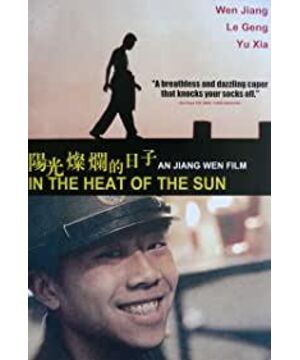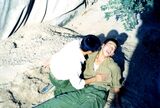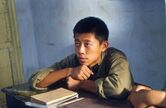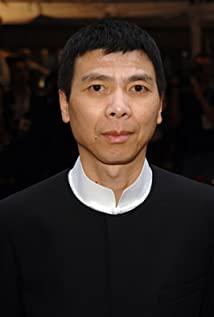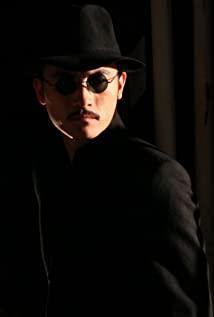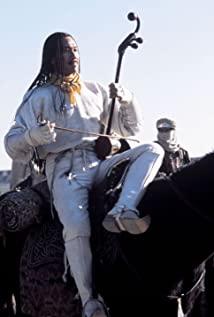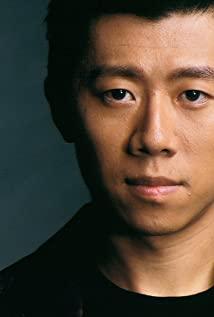In the shackles of the times, no one can detect the warmth and coldness of social affairs, and no one can dominate their own future. The film "Sunny Days" directed by the famous director Jiang Wen is exactly about the restless soul in a real and cruel cage in a specific era.
The film shows the audience the life of people during the Cultural Revolution through the perspective of an adolescent boy. The director uses an empty shot of blue sky and white clouds and a passionate revolutionary melody to recall the past days. The protagonist Ma Xiaojun and the boys in the military compound have the most precious friendship in life in the sunshine and sweat; he has a mighty heroic dream; Pay attention; he will also fight with the children in the outer courtyard for the sake of his friends, but he will show a focused and happy look when he picks up the girl's hair. At that time, every day was sunny, and the carefree teenagers sang loudly on the roof, but when the dawn of hope was about to reveal the results, the reality caught people off guard. The discrepancy between memory and facts made Ma Xiaojun's heroic dream come to nothing, and friendship and love dealt him a heavy blow. Those splendid days came to an end and became a bleak reality, and the boy who was once untamable was struggling under the shackles of the times.
Almost every shot of memories in the film has sunshine, which runs through the protagonist's long growing up memories, showing either warm or desperate moods. The girls who danced in the classroom in elementary school showed beautiful and warm memories in the lens that rendered the sunlight; the dazzling halo when the young people sang on the roof to watch the sunrise highlighted the theme of sunshine and became the protagonist's heart. the most beautiful memory. The hazy morning sun is like real life and false fantasy. When people find results behind their own hopes, life shows its hideous face, driving people into a hopeless abyss, which is like the light of the setting sun. , the protagonist ups and downs alone in the middle of the pool. The dim light creates a silent atmosphere, and the multi-angle shots show the lonely state of mind of the protagonist Ma Xiaojun, which drives the audience's emotions to a climax.
Director Jiang Wen used seemingly bland monologues and portrayal of characters to express an objective evaluation of this past era. It is not difficult for us to find that the director Ma Xiaojun is actually a cowardly and incompetent person. The cowardice of his character was highlighted by his crying and begging for mercy when he was reprimanded at the police station. During the interaction between Ma Xiaojun and Milan, the protagonist Ma Xiaojun has no masculinity at all. He is just a flamboyant child with an embarrassed smile. He is naive and forms a strong contrast with the calm elder sister Milan, which highlights the difference between the two. equal status. The director successfully portrayed the characters of the hero and heroine through several sets of close-up shots. Secondly, through a middle-aged man who is obsessed with music, the director shows the poverty of the people's spiritual life in that era, and at the same time shows the people's desire for knowledge, literature and art; through the fool's "silly B", it succinctly shows that the film's main theme and the director's relationship The ridicule and irony of the times tell the audience that the sunny days are gone.
Childish under brilliance, mature in gloom. Those days of laughter or absurdity are engraved on the bluestone of memory along with the flowing time, and everyone has grown into an unimaginable appearance several years ago under the shackles of the times. The result that I once pursued so hard is no longer important, the important thing is to have experienced such a boyhood, such a green time together.
View more about In the Heat of the Sun reviews


